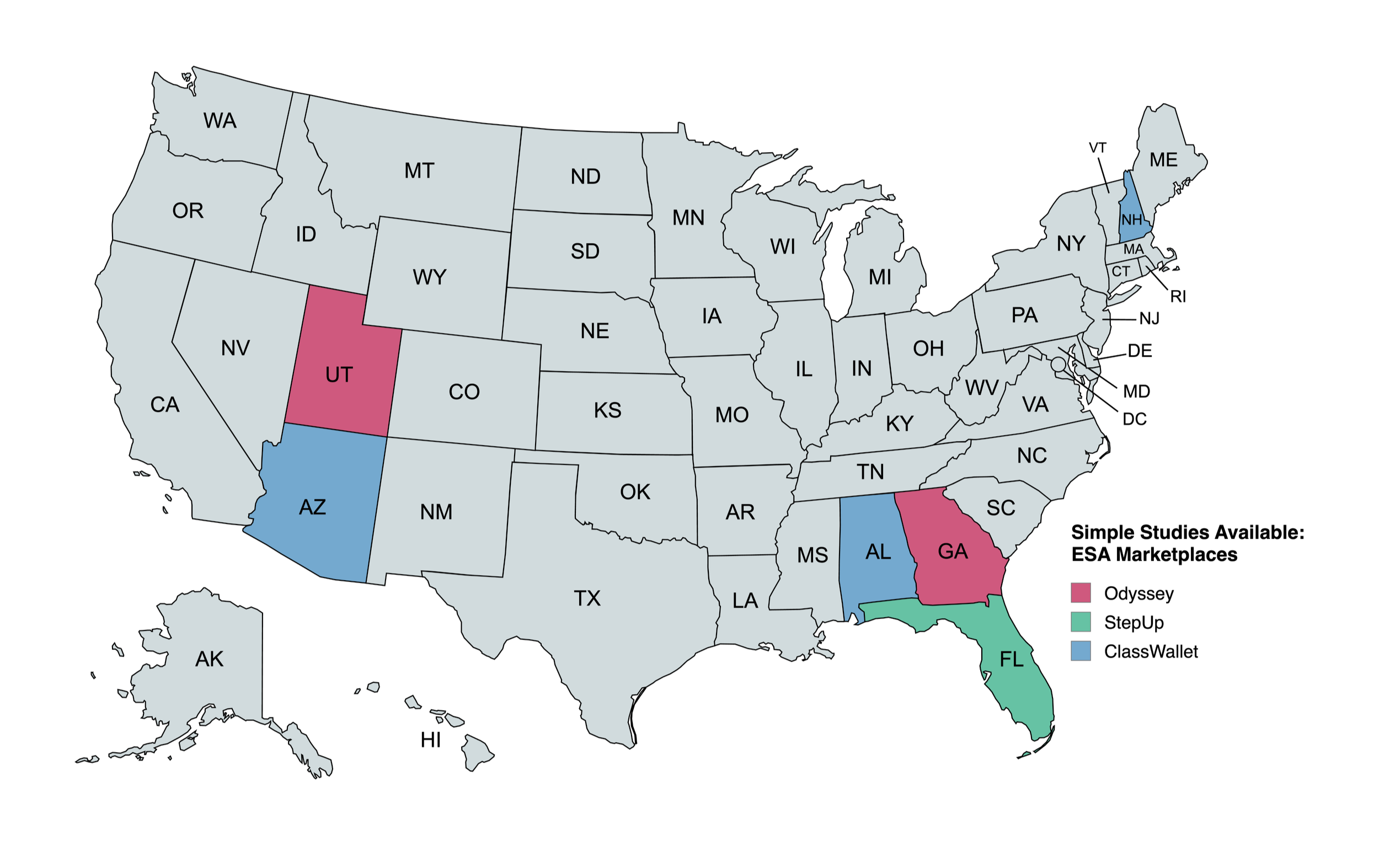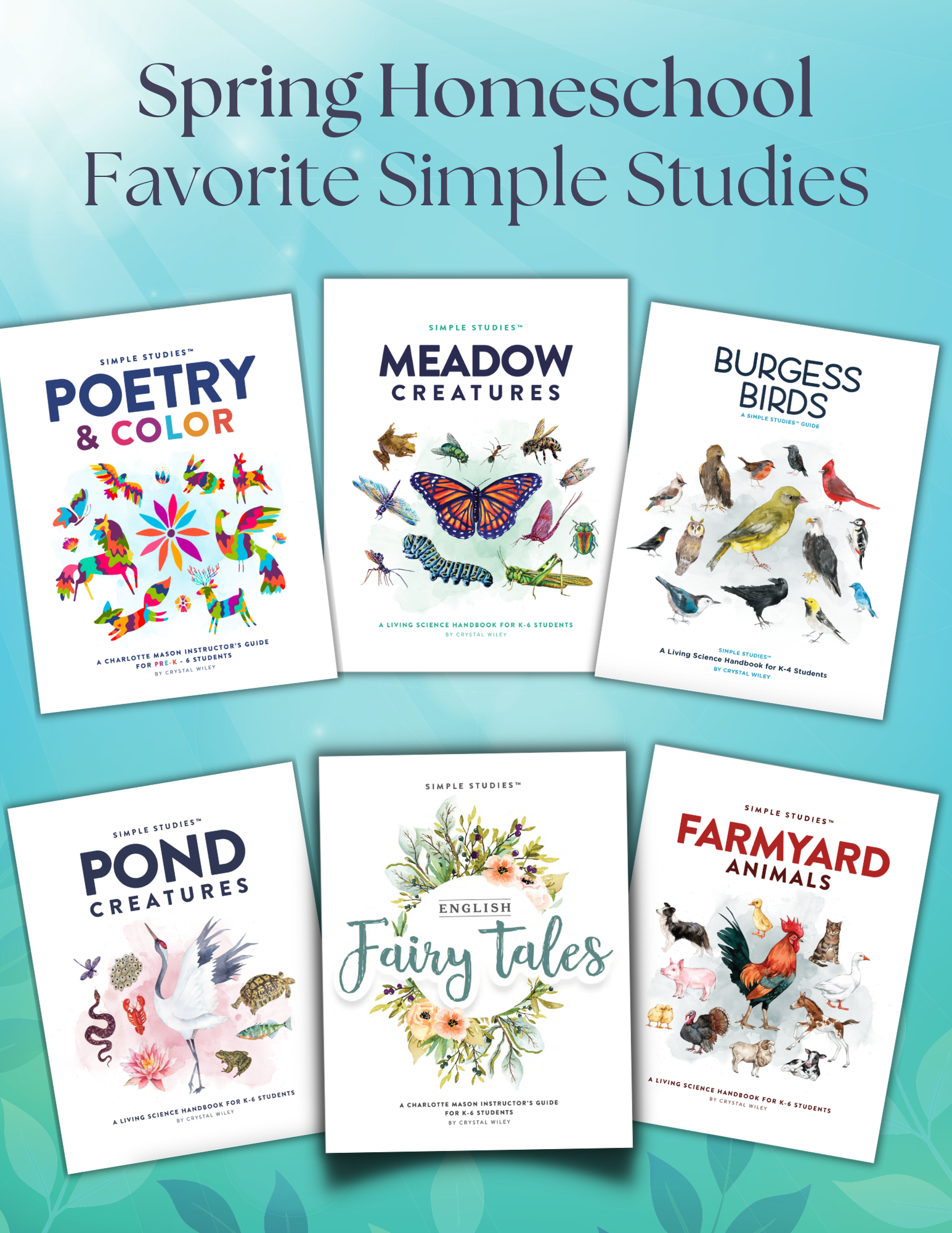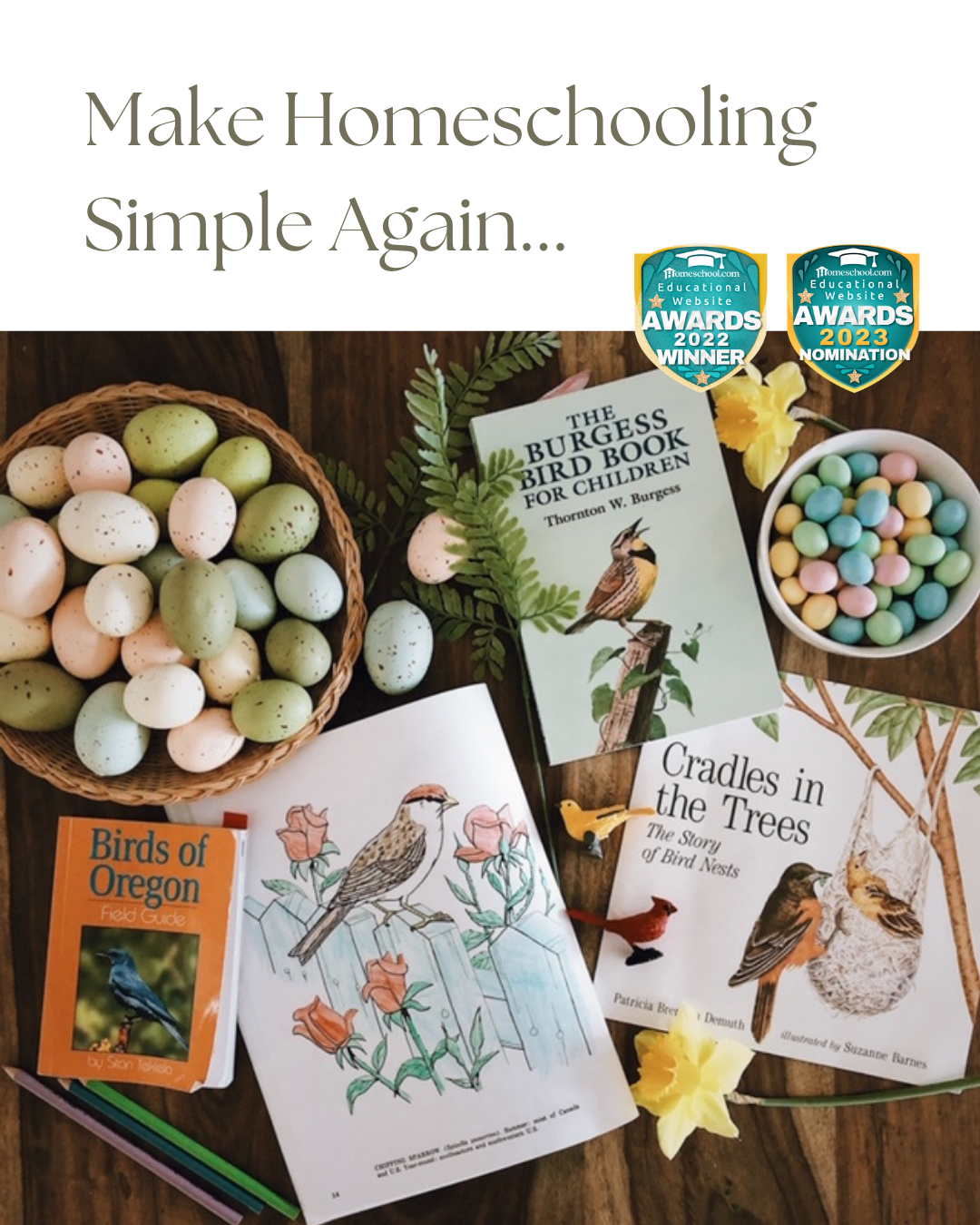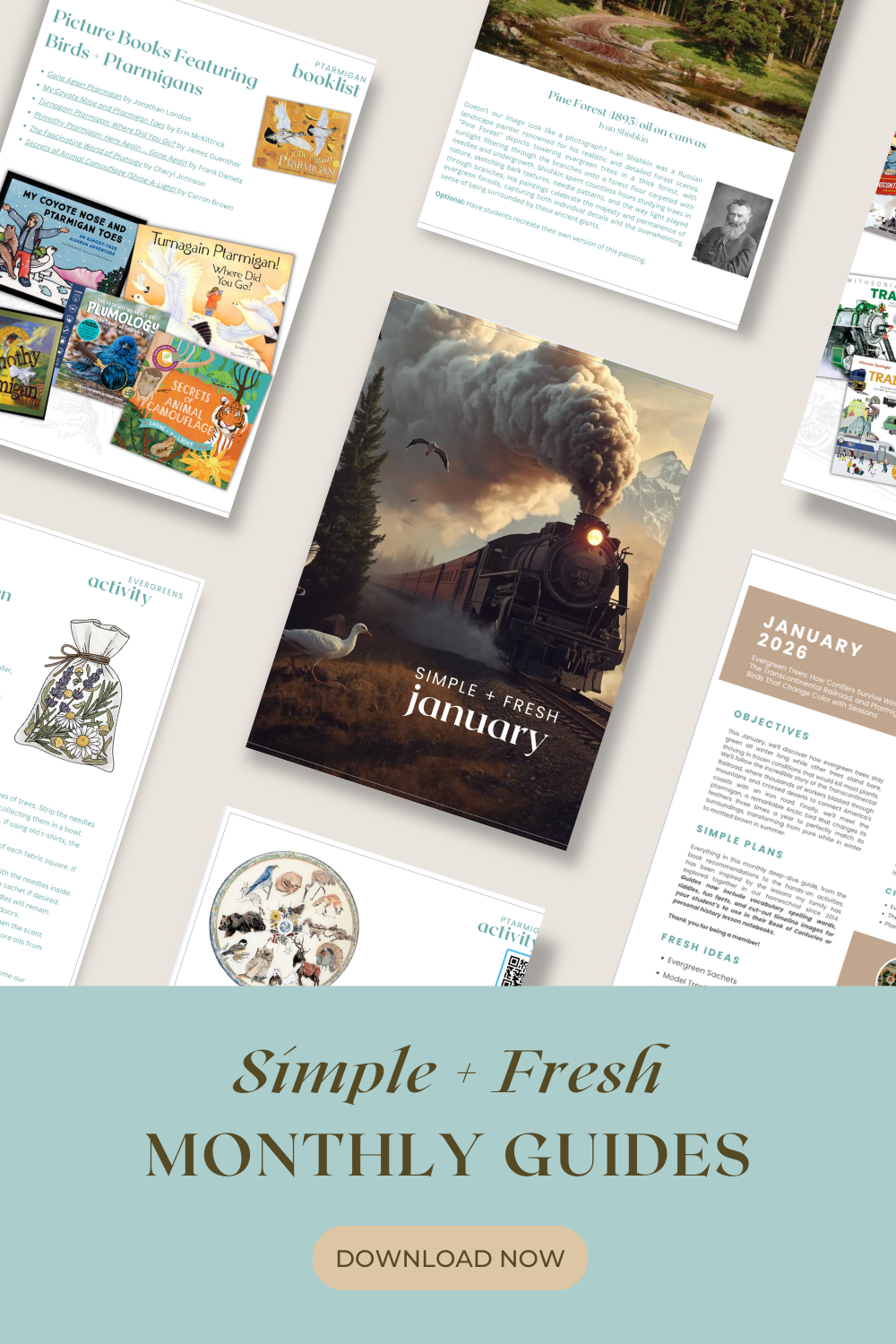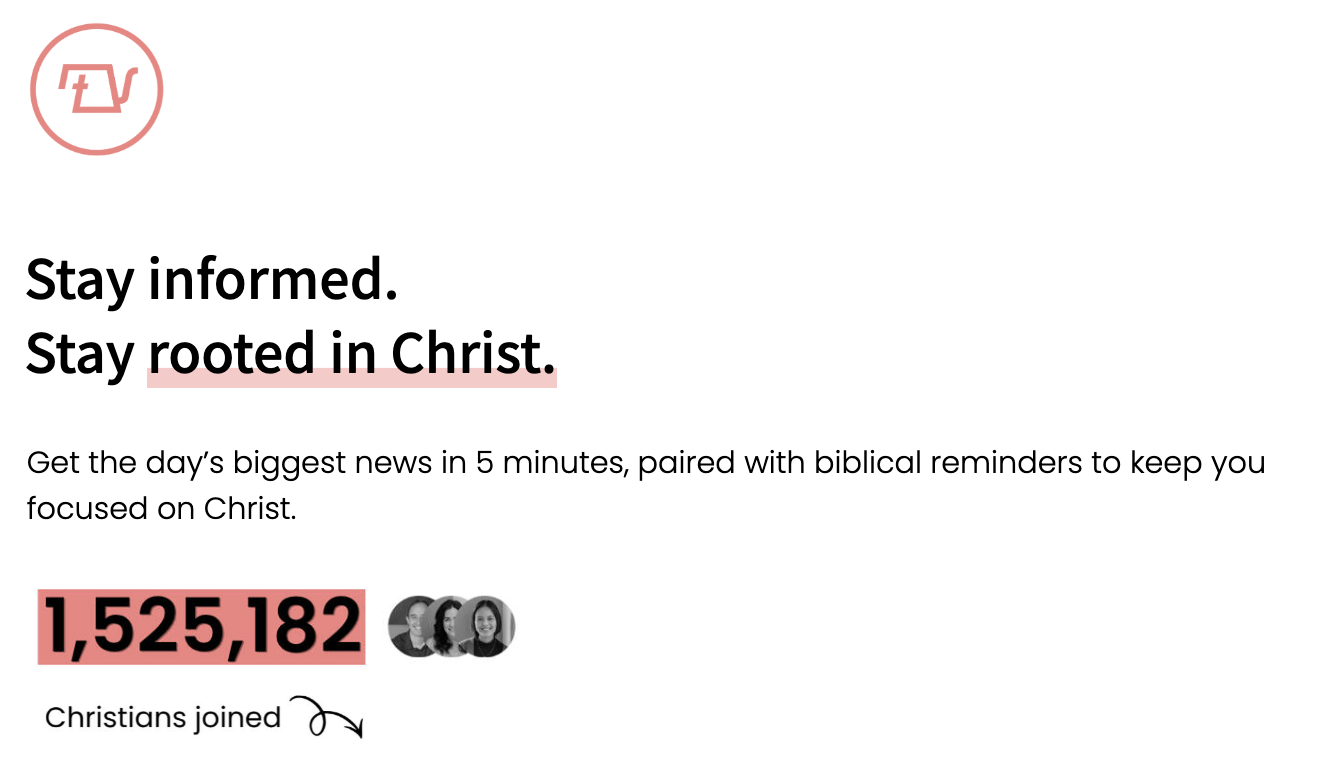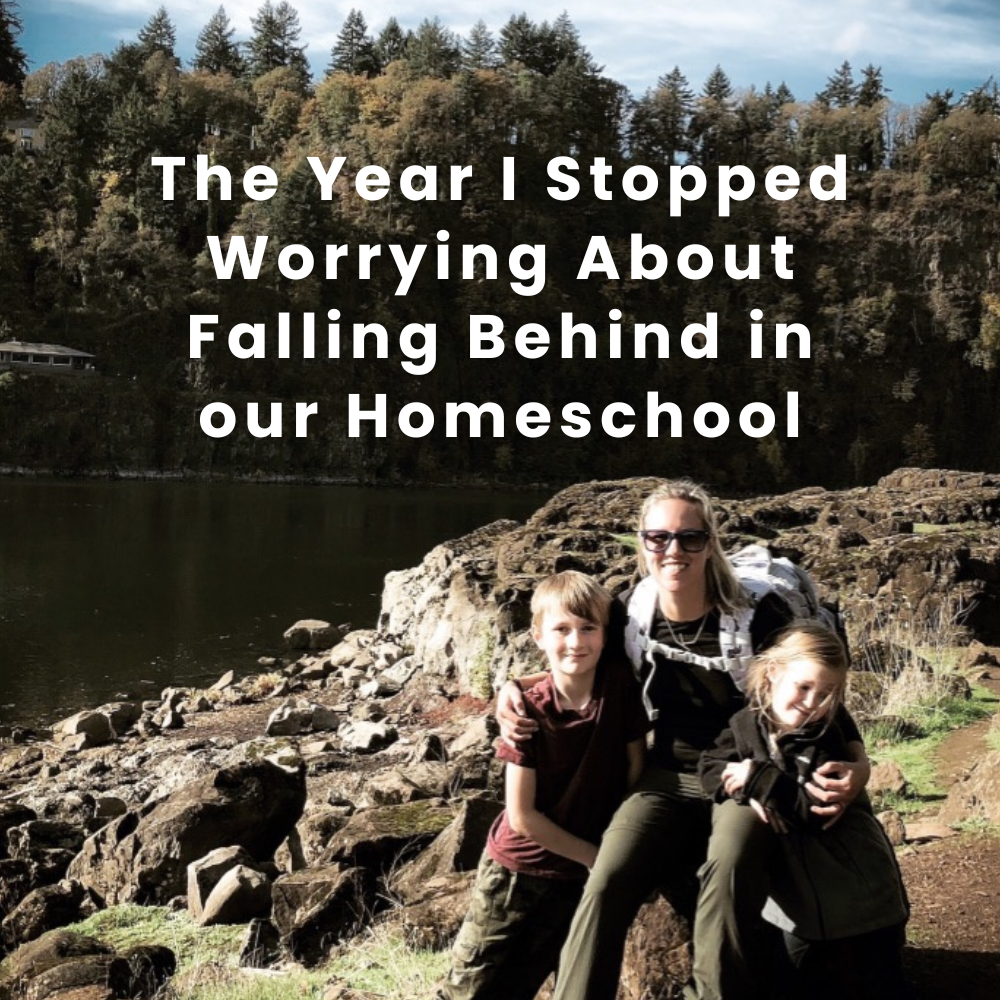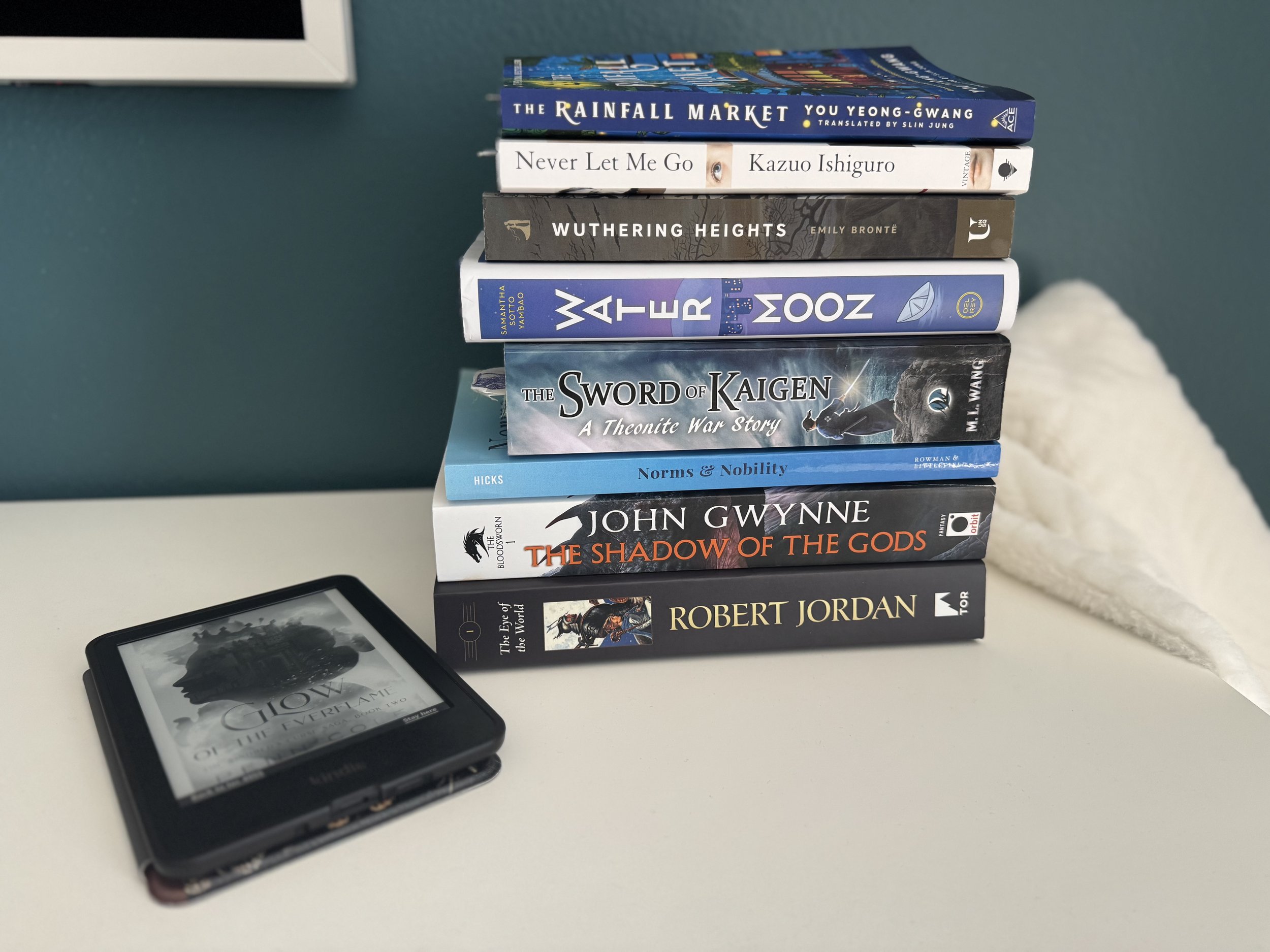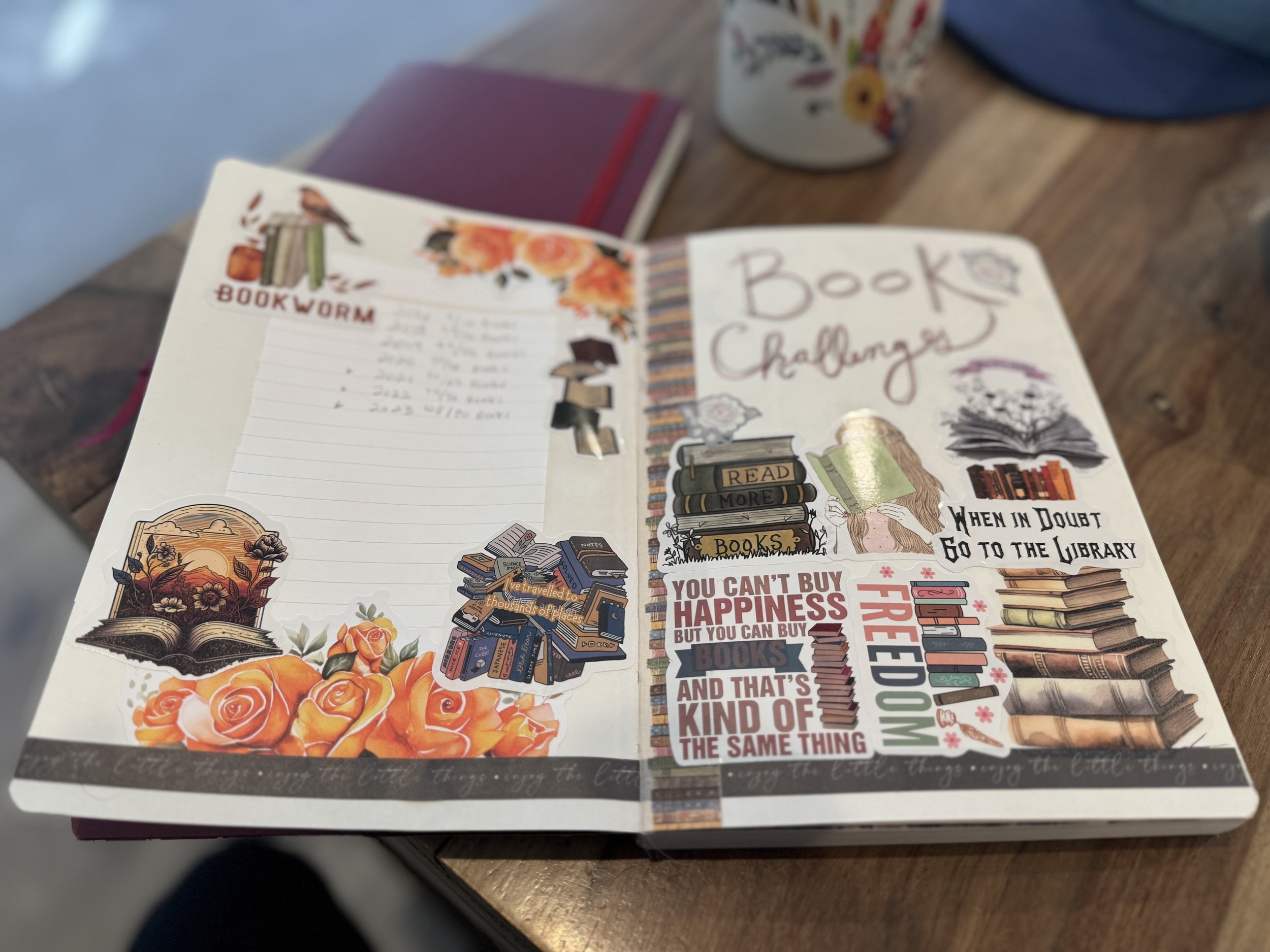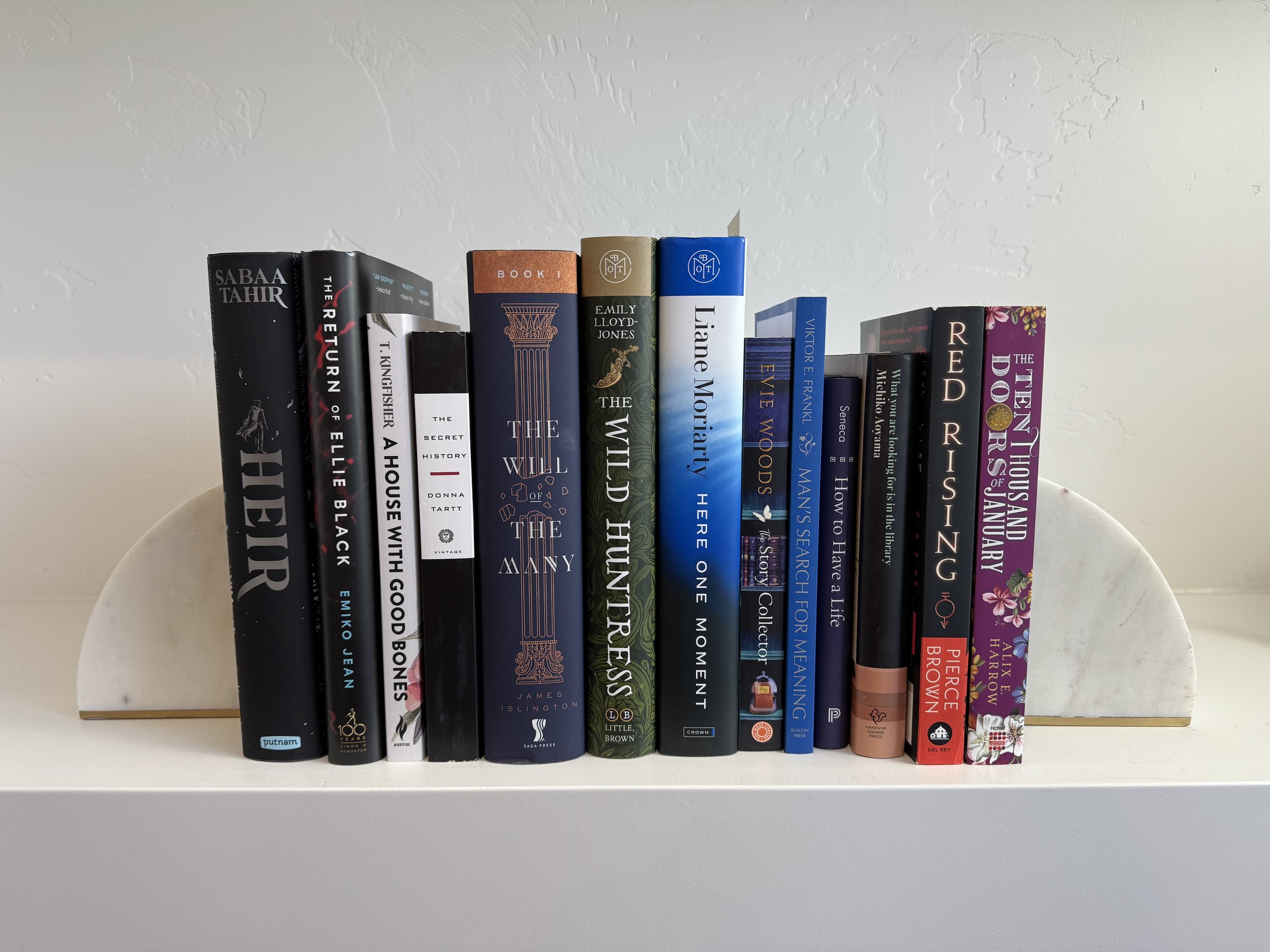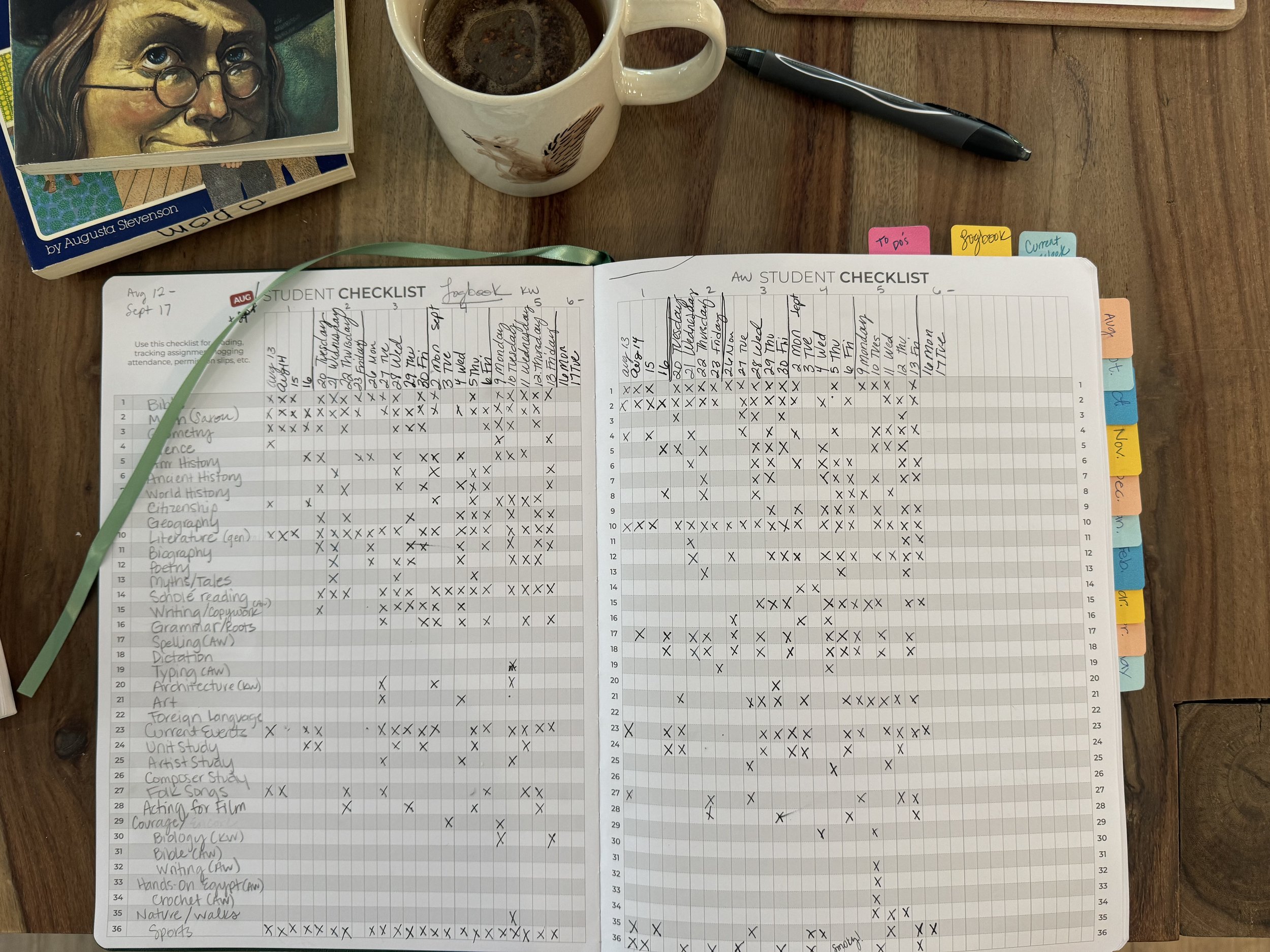So I’m here to confess: I'm terrible at modeling habits. Not the habit of loving my children well—that one comes naturally, thank goodness. But the habit of consistent time blocks? Predictable lesson times? A rhythm that anyone could set their watch by?
Yeah, not so much.
I've read all the Charlotte Mason wisdom about habits being the rails that set our children free. I nod enthusiastically. I buy the pretty planning notebooks. I tell myself, "This week, we're sticking to our schedule!"
And then a beautiful day dawns, or an opportunity presents itself, or my heart just aches for adventure, and suddenly the plan feels like a cage instead of freedom.
The irony of it all is that I'm actively trying to teach my children good habits while simultaneously struggling to maintain them myself.
It's like trying to teach someone to swim while you're still doggy-paddling in the shallow end.
When Your Child Needs What You Can't Naturally Give
But my love for throwing caution to the wind meets my children's genuine need for predictability. The very spontaneity that fills my cup can empty theirs.
One of my children gets genuinely frustrated—sometimes anxious—when they don't know what to expect. When Mom suddenly changes plans because the coast is calling or a hiking trail I’ve been dreaming of exploring suddenly appears too interesting and freeing to ignore.
So I've had to adapt. Not perfectly. Never perfectly. But adapt nonetheless.
Some days I manage to hold the plan, even when everything in me wants to abandon it. Other days I give in to the pull of adventure and we all go off-script together.
And you know what? We're all still here. We're all still learning. Nobody's education has been ruined by either the inconsistency or the occasional spontaneous hike, beach trip or other adventure.
IF YOU’VE EVER FELT THE SAME
If you're reading this and thinking, "Yes! This is me!"—welcome, friend. You're not alone.
We chose this homeschool life specifically because we didn't want the rigid routine of shoving breakfast down throats and pushing kids out the door onto a bus at 7:15 AM sharp. We wanted something different. Something with more breathing room.
More flexibility.
More life.
More Tuesday morning beach trips just because.
But somewhere between rejecting that institutional rigidity and creating our own sustainable rhythm, many of us got... well, a little lost.
I see those homeschoolers who are amazing at habits—the ones with their color-coded schedules and their consistent morning routines and their children who know exactly what comes next—and I try to learn from them. I really do. But it's like watching someone speak a foreign language. I understand the words individually, but putting them together into daily practice? That's where I stumble.
What Scripture Says
When I'm feeling particularly inadequate about my habit failures or when I'm spiraling because I had to choose consistency over spontaneity, I return to these verses:
"The Lord directs the steps of the godly. He delights in every detail of their lives." (Psalm 37:23)
Even my messy, inconsistent, sometimes-chaotic steps. Even the days I cry in the kitchen over a beach trip postponed by 24 hours. He's got this.
"The heart of man plans his way, but the Lord establishes his steps." (Proverbs 16:9)
I can make all the spontaneous plans I want (and then feel crushed when I can't follow through), but ultimately, God's the one guiding our days anyway.
His plans for my children include all my inconsistencies, all my failed attempts at routine, all the days we threw the schedule out the window to chase a genuine interest—and the days we stuck to the plan even when it hurt.
"Take delight in the Lord, and he will give you the desires of your heart." (Psalm 37:4)
God knows the desires of our hearts—both my desire for spontaneous, joy-filled learning AND my children's need for consistency.
He's not surprised by this tension. He created this tension.
Grace in the Gap
Over the past decade, I’ve learned that while God covers us in our weaknesses He also calls us to accountability, to growth, to continuing the work even when it's hard.
I'm not perfect. No one is except Jesus. But I can keep working on habits even when it feels like pushing a boulder uphill in flip-flops.
Even when honoring my children's needs means sacrificing what feels natural to me.
Some days I'll nail it. We'll go to community as planned. We'll stick to our loose schedule. My routine-loving children will sigh with contentment knowing what comes next.
Other days we'll throw it all out like we did when they were younger and head out on a 3-hour drive to nowhere, or spend hours hiking trails int he forest or driving to the coast on a Tuesday… because the learning happening there is too rich to abandon for the sake of consistency.
And both? Both can be okay.
Finding Your Family's Balance
The balance isn't found in perfection. It's found in the daily give-and-take of loving each child well.
It's in recognizing that my spontaneity-loving heart doesn't have to win every day, and my children don't have to live in constant uncertainty about what comes next.
It's in trying, failing, crying in the kitchen, getting back up, and trying again tomorrow.
It's in the grace to know that this struggle might be exactly what my children need to see.
Not a mother who has it all together, but one who keeps showing up, keeps trying, keeps leaning on God when her own strength isn't enough.
So if you're like me—if you love the freedom of going on adventures with your littles and pivoting daily lessons for some rabbit trails and genuine interests even when it throws off your weekly routine, if you've ever cried because you had to choose structure over adventure—you're not alone.
You're not failing. You're just human, doing a really hard thing, and trusting that God's got the details you're dropping.
That might be the most important habit we can model: the habit of depending on Him, day after messy day, whether we're sticking to the plan or abandoning it for the adventure. 🩵
